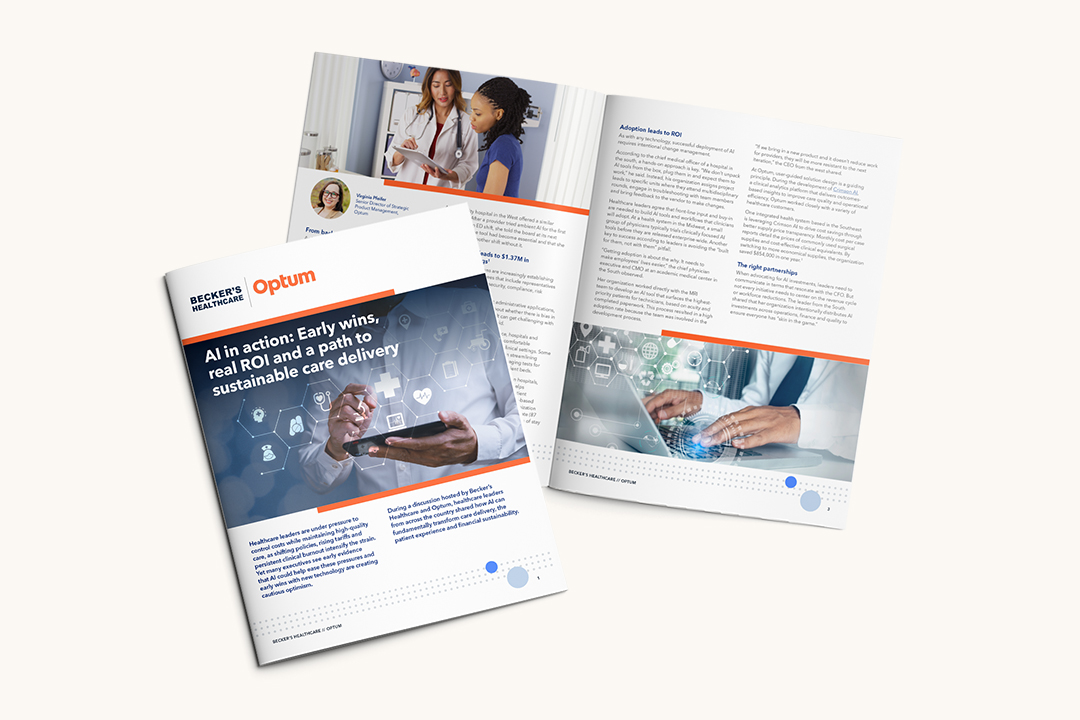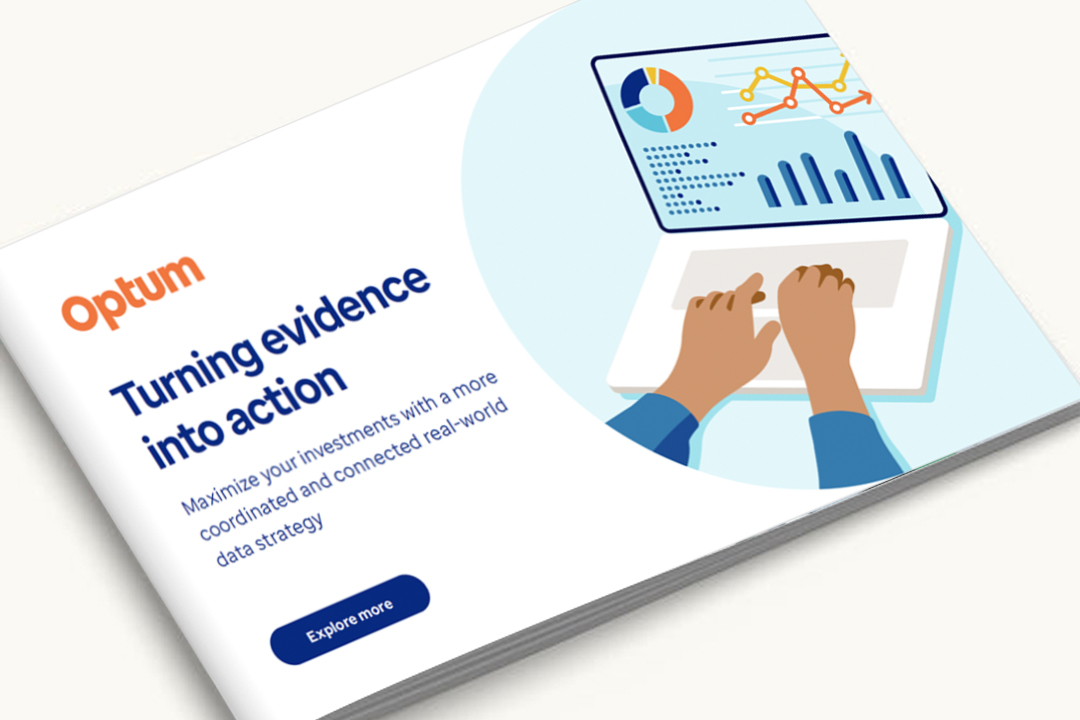Explore insights by category
Articles | Case studies and testimonials | E-books | Guides | On-demand webinars | White papers | Videos | View all
Latest featured insights

Case study
We offer analytics, consulting insights and real-world application for states to improve maternal health care for women enrolled in Medicaid.

White paper
Gain access to a discussion where health leaders across the U.S. share how AI can help transform care delivery and financial sustainability.
![Tackling OR Challenges with Active Data Management [Webinar]](/content/dam/optum-dam/images/business/insights/provider-holding-tablet-1080x720.jpg)
On-demand webinar
Watch experts reveal how leading health systems are using AI-enabled analytics to reduce surgical costs and improve operating room (OR) capacity.

Case study
Optum Life Sciences experts used real-world data to assist in the testing of an algorithm designed to assess for osteoporosis risk.
Latest articles

Article
Discover how using real-world evidence (RWE) in the life sciences industry can help catapult learning and drive impact for your company.

Article
To maximize the value of clinical innovations, you need dimensional, robust data. Learn about leveraging integrated cost and clinical data.
Latest case studies and testimonials

Case study
We offer analytics, consulting insights and real-world application for states to improve maternal health care for women enrolled in Medicaid.

Case study
Optum Life Sciences experts used real-world data to assist in the testing of an algorithm designed to assess for osteoporosis risk.

Case study
Learn how a fraud detection algorithm flagged a suspicious vendor, saving States millions for improved program integrity.
Latest e-books
![Trends Shaping Pharma Strategy in 2026 [E-book]](/content/dam/optum-dam/images/business/data-analytics/trends-shaping-pharma-strategy-2026-1080x720.png)
E-book
How should pharma manufacturers strategically evolve as the industry shifts? Get expert insights from Advisory Board and Optum® Life Sciences.

E-book
Maximize your investments with a more coordinated and connected real-world data strategy.
Latest guides
Latest on-demand webinars
![Tackling OR Challenges with Active Data Management [Webinar]](/content/dam/optum-dam/images/business/insights/provider-holding-tablet-1080x720.jpg)
On-demand webinar
Watch experts reveal how leading health systems are using AI-enabled analytics to reduce surgical costs and improve operating room (OR) capacity.

On-demand webinar
Explore the 5 pillars of value-based care every health system, health plan and provider needs to succeed.
Latest white papers

White paper
Gain access to a discussion where health leaders across the U.S. share how AI can help transform care delivery and financial sustainability.

White paper
Read how you can fill the data divide to develop effective treatment options.
White paper
For our 2-part series on the future of AI, we surveyed more than 100 healthcare leaders. Part 1 reveals how leaders are approaching AI investments. Part 2 looks at the leadership challenge that executives face.
Latest videos

Video
Lori Halpern and Dennis Vaughan discuss interoperability, helping communities address the growing mental health crisis and new ways of delivering care.

Video
See how robotic process automation (RPA) helped saved 9,465 hours and $950,000 over five years in our client use case example.
